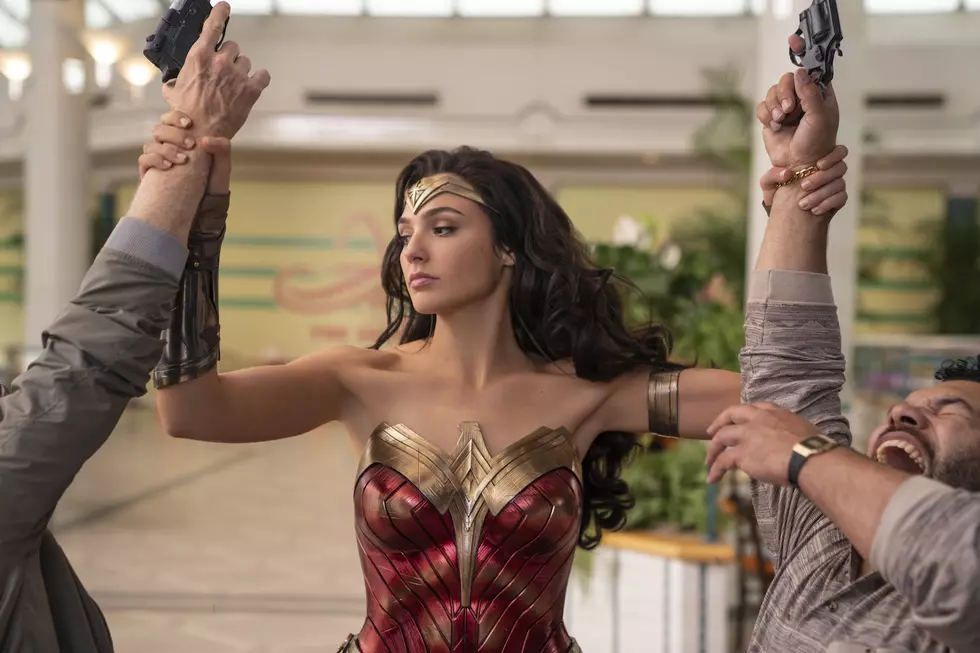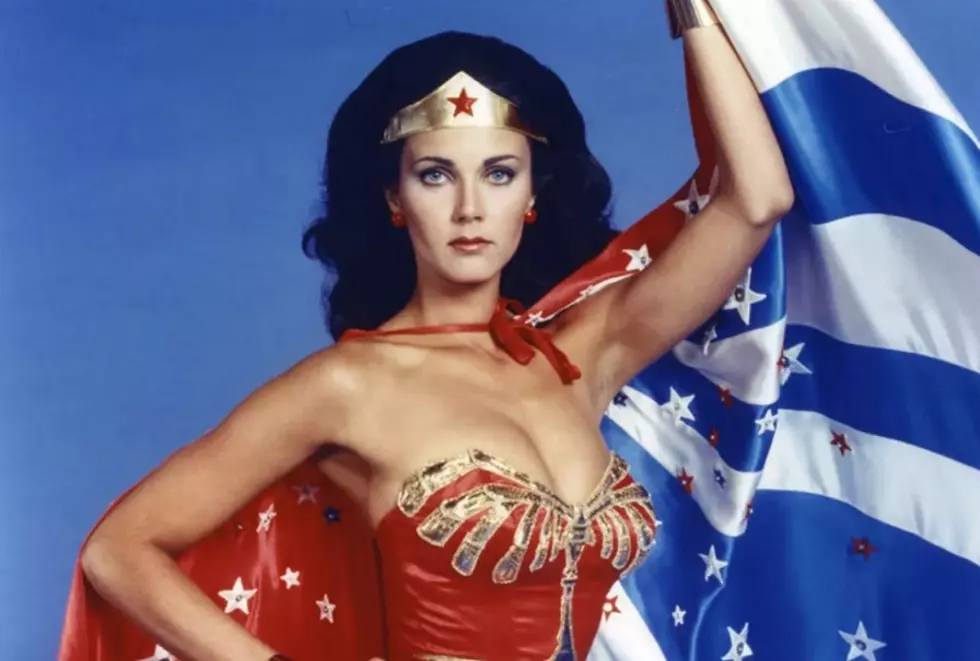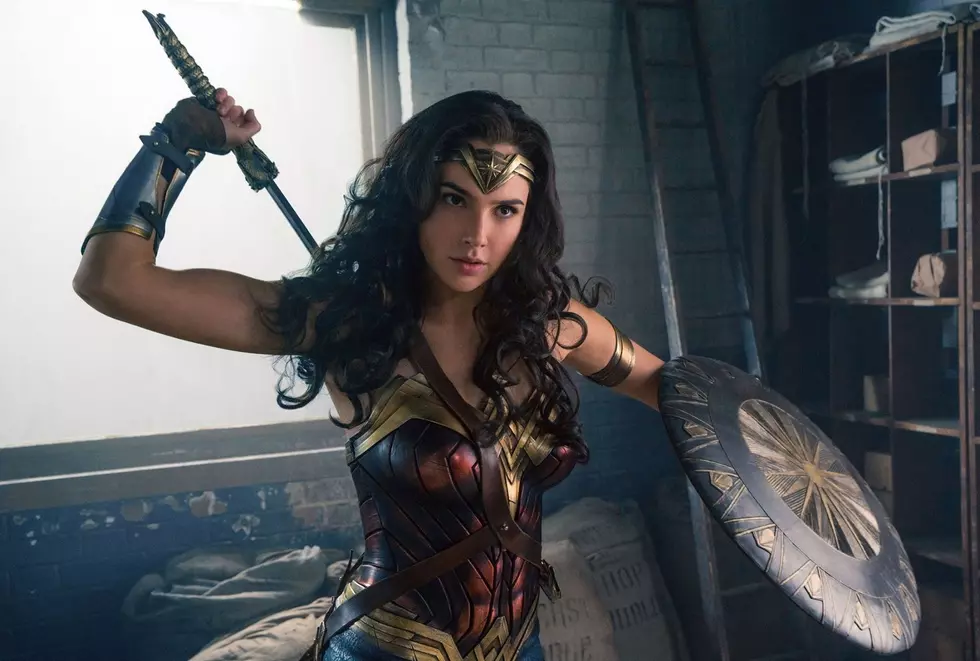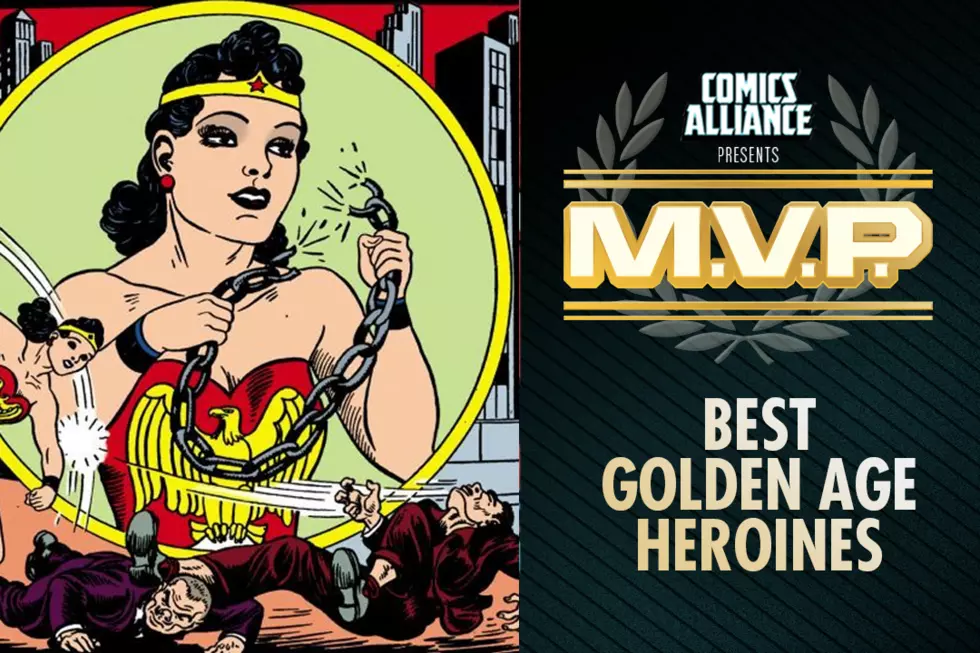
Comic Strip Lit Crit: Step Aside for Kate Beaton’s Self-Appraising Heroes & Histories
Kate Beaton's approach to Wonder Woman is perhaps one of the clearest examples of how the acclaimed cartoonist combines brilliant humor with perceptive critical analysis. After several appearances in Hark! A Vagrant, Wonder Woman makes a return six-strip engagement in Beaton's new book, Step Aside, Pops! When we first met this incarnation she was a bitter, sarcastic superheroine just trying to have a smoke, or reluctantly helping an old lady rescue her cat from a tree by yanking it down with her magic lasso.
This time around, Beaton gives some clues about why her Wonder Woman might be the way she is. Taking a meeting in "head office," she's told, "the Greek stuff, the outfit, the lasso... it's too weird to deal with" (though a bro with the same affectations somehow works), and gets mansplained by Superman and Batman. At a bar, a fan gushes about how great she thinks Wonder Woman is, without seeming to actually know anything about her:
That's Wonder Woman --- the real Wonder Woman --- distilled into three simple panels and four lines of dialogue. She's a character everyone thinks is important, everyone wants to like, everyone wants to be great, but, when you get right down to it, none of that desire has anything much to do with Wonder Woman's comics or stories. Everyone likes the idea of Wonder Woman, but no one really seems to care about her as a real... er... real fictional person. And giving voice to familiar frustrations that might be experienced by people we only know from stories --- fictional or historical -- is one of Beaton's great gifts.
Beaton takes preexisting characters and imbues them with her own read of their motivations. Sometimes she exaggerates them; sometimes she just puts a modern perspective in their heads, or modern dialogue in their mouths; and, in some cases, like Wonder Woman, she lets the characters voice the frustrations of their fans. Beaton writes literary criticism in comics form, with sharp observations delivered almost as a byproduct of the humor.
And so her Lois Lane is too busy covering a triple homicide to deal with Superman's weird mind-games; her Pride and Prejudice characters are aghast at those crazy Wuthering Heights characters; Achilles is a lunatic; Narcis Monturiol i Estarriol is bummed that everyone thinks his submarine invention is silly; and early aviatrix Katherine Sui Fun Cheung is so confident she bursts onto the set of Top Gun and starts flexing.
It surely helps that Beaton draws funny. Jokes about how ignorant people used to be about child care before Sara Josephine Baker came along can be funny on their own, but they're surely funnier given the way Beaton draws the blank, stupid faces on her babies, you know?
While putting contemporary thoughts and criticisms into the funnily-drawn heads and mouths of literary and historical figures may be one of Beaton's greatest tricks, she's far from a one-trick pony (though she does draw fat, blank-faced, stupid-looking ponies extremely well, while we're on the subject). Step Aside, Pops also includes a re-telling of Cinderella, stories of the "Straw Feminists", strips featuring the Strong Female Characters (created with Meredith Gran and Carly Monardo), and a long story extrapolated from the first few seconds of the music video for Janet Jackson's Nasty Boys, plus several examples of "prompted" comics, in which Beaton uses a pre-existing image --- the covers to Nancy Drew books, woodcut imagery from broadsides, vintage Halloween postcards --- as the first panel of a comic strip.
The title story actually comes from one such prompted comic. Beaton found an old-timey cartoon from around the time bicycles were invented, meant to convey how shocking, dangerous, and inappropriate it was for a lady to ride a bicycle, "not knowing that in our time," Beaton writes, "we would look at those cartoons and think those women look AWESOME."
When the little old-timey man is knocked off his velocipede by "that awful velocipedestrienne," she stops to give him a dirty look, and spits out, with her cigarette held in gritted teeth, "you see me rollin up pops you step aside."
There's probably a larger point to be found in that piece too, about sexist attitudes will always eventually be universally acknowledged as absurd. But here again, although the "character" is a random woman from a single image, the Victorian era velocipedist is just saying what Beaton (or the modern reader in general) is thinking. And yet, as recognizable as these characters attitudes may be, no-one writes Wonder Woman --- or Zeus, or Ida B. Wells, or Tom Longboat, or dozens of other characters, fictional and historical --- quite like Kate Beaton.
More Artists Offer Their Takes On Wonder Woman
More From ComicsAlliance









